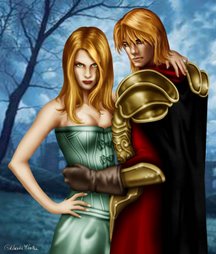I was 12 years old, maybe 13. Not quite bored of Enid Blyton but ready for something a bit more intense. The school library was not quite as vast as I would have liked it to be. And anyway, reading recommended by teachers was bound to be boring, wasnt it? So then one day, my English teacher (whom I loved, by the way) digressed from the lesson at hand to discuss what she thought we should be reading. I still remember her words, when she said "I hope you are not wasting your time reading trash like those Agatha Christie novels!".
Of course, that was all that was needed. I devoured most of Dame Agatha's novels with relish and became an ardent fan of Hercule Poirot especially. The first Christie I read happened to be "The Big Four" and my 12 or 13 yr old self was thoroughly impressed. But the Christie phase ended as reading tastes matured.
Anyway, even though I havent read a Christie novel over the past decade or so, I have always had a fond place in my favourites list for her mysteries. I still own half-a-dozen of them, and thats after having 'loaned' a bunch of them to friends, never to get them back. So, when I recently found 40 Agatha Christie books, the nostalgia itself egged me on to collect them.

And the first of the books I decided to read was "The Big Four". The same story which so thrilled me as a kid, seemed like one of Agatha's worst this time around. Hercule Poirot just does not seem the type who would have cigarettes which would double as a blow-pipe containing a poisonous dart. Although it does work in bits and pieces, overall - bad decision Dame Agatha.

I followed that up with the truly excellent "Mystery of the Blue Train". Perhaps this book is one of the best constructed of the Poirot mysteries. I was a bit dissappointed to find that I was able to guess the culprits identity well before the end, but I guess being a lot older than 13 has something to do with that. But it didnt take anything away from the pleasure and charm of reading a classically constructed Agatha Christie plot again. This story is also probably one of the less common Poirot stories which does not always follow Poirot around, making it necessary for the great detective to be constantly on the scene. He is very much in the periphery for great parts of the novel, and does not even make an appearance until well into the book. This book also differs from many other Christie novels in the build-up to the crime - which is a lot more detailed and complex, reminding me of PD James and Ruth Rendell. Much more than the usual dinner party with suggestive small talk during the main course! I dont think Agatha's fans will like that description!
But whether it be the antics of super-spy Poirot, or the intricate laying out of red herrings in the second book, the charm of reading an Agatha Christie novel once again has me in its embrace.
















